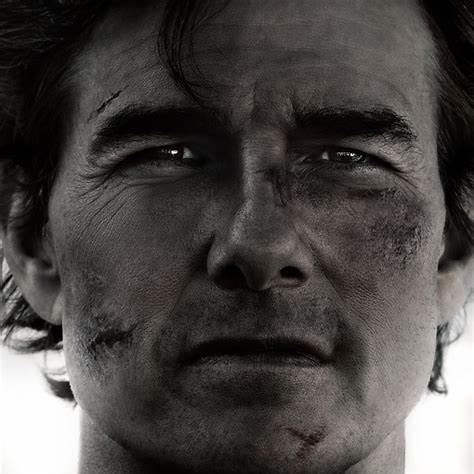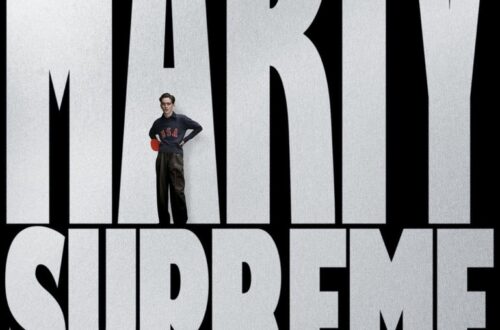After nearly three decades of death-defying stunts, intricate espionage, and Tom Cruise sprinting through impossibly perilous situations, Mission: Impossible – Final Reckoning arrives as both a culmination and a farewell. The film, directed by Christopher McQuarrie, not only raises the bar for the franchise’s signature action sequences but also anchors its spectacle in an emotional core that gives weight to the chaos.
From the opening minutes, the film establishes its intent to go big. The prologue unfolds across three continents, with Ethan Hunt and his IMF team piecing together the final threads of a conspiracy that has stretched across the previous two installments. The plot revolves around a rogue AI program—an extension of the threat introduced in Dead Reckoning—that has gained unprecedented autonomy and is manipulating global systems. It’s an eerily timely premise, and McQuarrie plays it straight, treating the stakes as world-ending but grounded enough to feel uncomfortably plausible.
Cruise, now in his early sixties, remains an astonishing physical presence. There is a meta thrill in watching him push himself through daredevil feats—motorcycle chases through narrow European streets, a freefall skydive onto a moving freight train, and a tense underwater infiltration sequence that plays out in nearly unbearable real time. These set pieces are constructed with the precision of a Swiss watch, shot in ways that emphasize geography, momentum, and the actor’s own involvement in the stunts. McQuarrie understands that part of the appeal is knowing we’re seeing Cruise himself in the frame, and he delivers that authenticity without leaning into self-parody.
Rebecca Ferguson’s Ilsa Faust, Hayley Atwell’s Grace, Simon Pegg’s Benji Dunn, and Ving Rhames’ Luther Stickell all return, each given moments to shine and arcs that feel earned. Atwell, introduced in Dead Reckoning Part One, cements herself as a vital presence, her character’s uneasy alliance with Hunt evolving into a relationship built on mutual trust and a shared willingness to sacrifice. Ferguson remains a force of cool competence, while Pegg and Rhames provide the warmth and loyalty that has long balanced the franchise’s intensity. Esai Morales, reprising his role as Gabriel, deepens his menace, bringing a calm, calculating cruelty that makes him one of the series’ most memorable villains.
The pacing is relentless but not exhausting, with McQuarrie and editor Eddie Hamilton finding a rhythm that allows quieter moments to land. These pauses—conversations in dimly lit safehouses, flashbacks that reframe earlier missions—give the film its emotional heft. Hunt is no longer just the unflappable super-spy; he is a man carrying the weight of decades of choices, allies lost, and enemies made. There’s an undercurrent of mortality that runs through the story, reminding viewers that this mission truly is the last.
Visually, the film is stunning. Cinematographer Fraser Taggart uses contrasting palettes to define locations: the cold blues and silvers of a snowbound Arctic base, the warm golds of a Moroccan desert city, the slick neon of a rainy Hong Kong night. Combined with Lorne Balfe’s muscular, evolving score—which threads in and out of the iconic Mission: Impossible theme—these choices create a sensory tapestry that feels grand and cohesive.
The script does occasionally lean into exposition-heavy stretches, particularly when explaining the AI’s capabilities and global influence, but the performances keep these scenes from dragging. Cruise’s conviction sells even the most far-fetched turns, and the ensemble’s chemistry makes the mechanics of the plot engaging.
As a conclusion, Final Reckoning strikes a balance between spectacle and closure. It honors the franchise’s history without becoming a greatest-hits reel, weaving in callbacks and subtle references in ways that feel organic. Longtime fans will catch visual nods to earlier films—a climbing sequence that echoes Mission: Impossible II, a train confrontation reminiscent of the 1996 original—but the narrative stands firmly on its own.
By the final act, when the stakes are as personal as they are global, the film delivers an ending that feels both satisfying and open-ended enough to acknowledge the IMF’s work never truly ends. Yet for Ethan Hunt, this chapter closes with dignity, courage, and the same relentless commitment that has defined the character for nearly 30 years.
Mission: Impossible – Final Reckoning is a thrilling, heartfelt send-off to one of cinema’s most consistent action franchises. It’s a reminder that even in an era of CGI overload, there is unmatched power in practical stunts, committed performances, and a story that values its characters as much as its set pieces.




